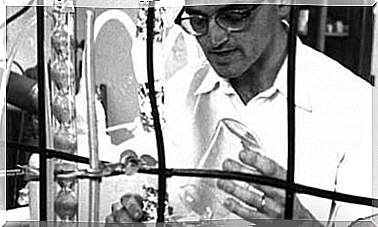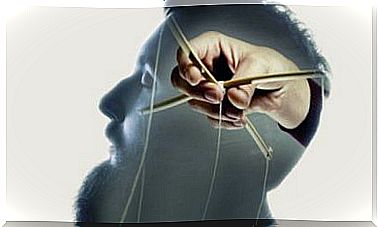Believe Or Not Believe In Psychology

Anyone has heard the following lapidary phrase: ” I do not believe in psychology. ” In the same way, there are not a few students who, timidly, have raised their voices communicating that they study psychology. Nor are few who have received the same answer: ” I do not believe in psychology .” Thus, today we want to ask ourselves that same social question, that of believing or not believing in psychology.
The belief that one can believe or disbelieve in a science seems to have spread, with psychology being one of those elective sciences.
However, behind that phrase other types of phenomena are hidden, this being the symptom of much more elaborate processes. Psychology cannot be believed or not, at least in the same sense as religion.

Psychology is not what people think
Many people seem not to believe in psychology because they don’t know what psychology is. They can try to convince us by saying that psychology is nothing more than a person talking to another person, advising him and saying: ” calm down, everything will be fine “. Therefore, these individuals do not believe in such discipline, because to go and pay someone to speak, they prefer to do it with a friend.
These people, in reality, do not seem to understand what is done in a therapeutic work or all the phenomena that can underlie an emotion, a behavior or a thought. Therefore, when they say that they do not believe in psychology, they are absolutely right, since their conception of psychology is totally wrong and is full of prejudices and stereotypes.
Psychology is a science that not only encompasses talking. Of course, the word is one of its most powerful and useful tools. However, nothing that is said in therapy is by chance, and even in the dialogue, therapeutics is already being worked on.
Usually, a subject who does not believe in psychology does not know what is done in a psychological consultation : cognitive restructuring, ERT, EPR, relaxation techniques, behavioral activation, work on social skills, self-efficacy, changes in attributive styles, emotional ventilation , emotional awareness, systematic desensitization …
Therefore, if you do not believe in psychology because in therapy “you only talk”, you must try to understand “what” is talked about in therapy. The word is the psychologist’s vehicle for working with the client.
The weakness of going to the psychologist
Another deeply ingrained prejudice in society is that many people think that going to the psychologist is equivalent to being weak. We have all heard that, instead of going to the psychologist, what the person needs is to wake up.
Therefore, while it is related to the weakness of the person, many people say they do not believe in psychology because it would make them able to be considered weak.
However, and in the opposite sense to this thought, it is necessary strength and courage to go to the psychologist. Recognizing that we need help, thinking that the action of others can solve our problem and requesting it is, in many cases, the smartest way.
The intricate intrusion into psychology
Popular culture, with phrases that are familiar to everyone (” crying is useless “, ” depression is cured in this way “, ” this person is rare and will never change [a person with OCD]” , ” Is a manual psychopath “) has caused psychology, apparently, to be a discipline that everyone can exercise.
In fact, it is not uncommon for many people to try or think they play this role with friends. Thus, psychology seems, instead of a scientific discipline, a popular discipline.
This harbors great dangers, since the trained psychologist can, apparently again, offer the same as the untrained person who “knows how to listen” or “gives good advice.” So why go to a psychologist when I have a friend with whom I already have confidence and who does not charge.
This phenomenon is closely linked to the confusion and myths surrounding the psychologist’s work. We can also observe the intrusion into psychology in other disciplines such as coaching.
Although they use 90% of psychological techniques, their training is not regulated and they do not need to have degrees in this discipline. Psychology, therefore, is a science that can be, and is, in fact, mastered by anyone who has “psychology.” Therefore, “believing” in the work of the psychologist is sometimes difficult.

Is there missing data to validate the psychology?
As usual, the greatest interest in scientific articles comes from those whose profession is related to that discipline. Thus, it is normal for doctors to read articles about new advances in medicine and for psychologists to read about new therapeutic techniques used, for example, in third-generation therapies.
Although everyone has access to these types of articles, the normal thing is that people who do not belong to the profession do not have access or do not know how to understand or interpret them. Thus, by remaining somewhat in the shadows, it seems that the commonly used psychological techniques do not have a scientific basis to support them.
This, of course, is not so. Through infinite investigations, longitudinal studies, with more or less small samples, the efficacy of the techniques and methods used has been empirically proven , depending on the disorder or condition. The psychologist does not use, or should not use, approaches whose efficacy has not been proven.
For all the aforementioned, the question “Believe or not believe in psychology?” Meaningless. Above faith, it is research that dictates the best way to proceed in consultation. On the other hand, not believing in empirically validated psychological techniques is similar to saying that the Earth is square : we can believe that it is, but in the XXI century it does not make much sense.








